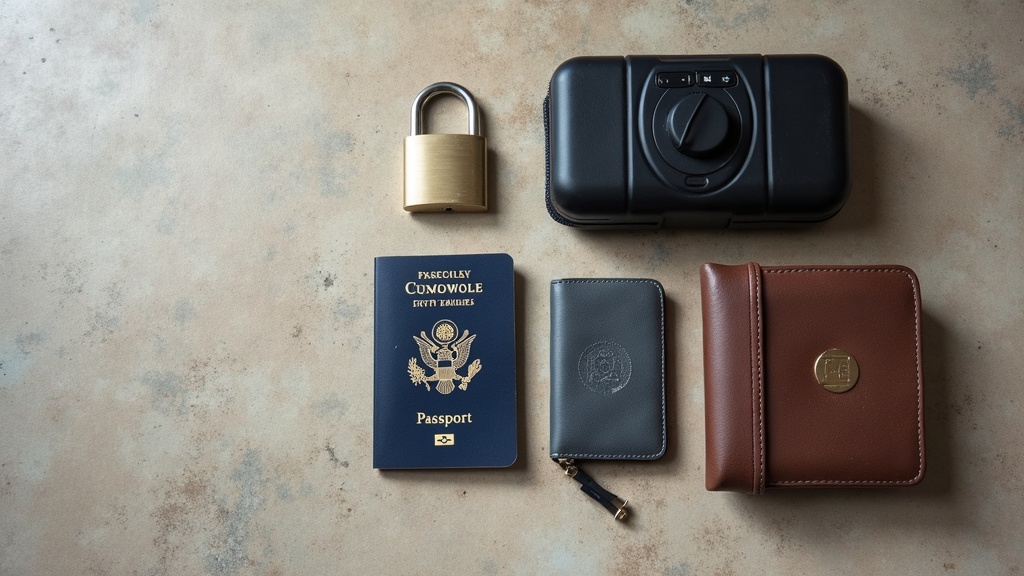Traveling frequently brings exciting adventures and new discoveries, but it also comes with some real security worries that can catch even seasoned explorers off guard. This guide is packed with practical security tips for frequent travelers, so you can enjoy your trips without that nagging worry in the back of your mind.

Why Travel Security Is Really Important
Even the most experienced travelers can run into trouble on the road, from petty theft and lost items to more complicated issues like scams or digital hacking. The physical and cyber risks seem to multiply when you’re far from home, especially if you’re dealing with language barriers or unfamiliar local customs. According to the US Department of State, pickpocketing and bag snatching are the most common crimes against travelers, but there are plenty of other less obvious dangers lurking too.
Most people are worried about losing their valuables, passports, or getting caught in a scam. For business travelers, there’s the added stress of protecting sensitive work data and staying connected safely. Being aware and prepared makes travel more relaxing and enjoyable, no matter how many passport stamps you’ve racked up.
Basic Safety Steps Every Traveler Should Know
Some habits might seem obvious once you travel a lot, but skipping them isn’t worth the risk. Here are foundational steps you should always keep in mind:
- Keep Copies of Important Documents: Always scan your passport, visa pages, travel insurance, and credit cards, then upload copies to secure cloud storage or email them to yourself. Having a digital copy is a lifesaver if anything gets stolen.
- Watch Your Bags: Never leave your bags unattended, even for a moment, especially in airports, train stations, and hotel lobbies. Lock up zippers and use a cable lock for extra peace of mind.
- Be Careful With Cash: Spread out your money between a wallet, a hidden pouch, and sometimes tucked inside a sock. That way, if one stash is lost or stolen, you’re not left out of luck.
- Don’t Flash Valuables: Keep jewelry, gadgets, and cash out of sight. The less attention you draw, the better.
- Know Emergency Contacts: Keep a small laminated card with embassy info, hotel numbers, and a local emergency number in your bag and wallet.
International Travel Security Tips
Going overseas brings up a whole new set of challenges. Here are precautions international travelers should take:
- Check Travel Advisories: Visit your government’s travel website for up-to-date advice about safety, unrest, or health concerns in your destination before you start packing.
- Register With Your Embassy: For longer trips, use your country’s embassy website to register. This way, help is faster in case of natural disasters, civil unrest, or emergencies.
- Be Smart About Transportation: Only use official taxis or approved ride-sharing apps from the airport, check vehicle plates, and trust your gut. If something feels off, get out.
- Understand Local Laws: Even your wardrobe or how you act can be a security risk in some countries. Always read up on local customs and rules before landing.
- Protect Your Data: Use strong passwords, enable phone passcodes, and stay off public WiFi for sensitive online activity. A good VPN is handy for encrypting Internet traffic and keeping things private.
Traveling internationally often means finding your way through crowded airports, complex visa checks, and language differences, which makes careful planning even more important.
Hotel and Accommodation Safety Hacks
Hotels might seem secure, but even the fanciest resorts have their risks. Here’s how to protect yourself and your belongings in hotels or rentals:
- Pick the Right Room: Ask for a room between the second and sixth floor. It’s high enough to avoid break-ins but still within reach of emergency exits.
- Use Extra Locks: Even with a deadbolt, pack a simple doorstop alarm or travel lock to keep unwanted visitors out.
- Check for Surveillance: A quick sweep for hidden cameras takes just a minute. Look for odd holes, random electronics, or USB chargers pointing at private areas. There are affordable phone apps that scan for signals, which adds extra peace of mind.
- Store Valuables Smartly: Many hotel safes are easy to tamper with, so use a portable travel safe or lock valuables in your suitcase with a cable lock.
What’s the Biggest Concern When Traveling?
The biggest worry most travelers have while on the road is losing a passport or having their wallet or phone stolen. It can leave you stranded without cash, identity, or a way to contact help. That’s why you should put backup steps in place, like storing copies of your ID, keeping emergency cash in different spots, and never relying on just one payment method. Staying alert to pickpocketing, especially in busy tourist areas or on public transit, is also a major priority.
How Business Travelers Can Stay Safer
Traveling for work comes with extra issues, especially when carrying sensitive devices or dealing with confidential information on the go. Business travelers should:
- Protect Data: Use encrypted devices and always enable remote-wipe features on phones or laptops. If a device goes missing, you can erase it quickly.
- Secure Meetings: Be careful where you take work calls or meetings; public spots like hotel lobbies aren’t great for private business chat. Use headphones and speak quietly if you must call someone with strangers nearby.
- Pack Light: Only bring what’s essential. If you don’t need a work laptop, leave it locked up at home or in your office.
- Keep Tech With You: Laptops, hard drives, and tablets should stay with your carry on or day bag at all times—never checked in or left behind.
- Stick to Secure Networks: Use a VPN on all company devices and avoid moving files over public WiFi whenever possible.
Some companies now give out “clean” devices to employees just for travel. Ask your IT department if this is an option for your trips, as it adds another layer of protection.
Dealing With Common Travel Security Challenges
Even with tons of trips under your belt, you can still run into situations that test your planning skills. Sometimes it’s a pushy taxi driver, a sketchy ATM, or that sinking feeling when you can’t find your room key. Here’s how to tackle these moments:
- Lost or Stolen Credit Cards: Keep emergency bank phone numbers handy and call right away if something happens. Having a backup card from a different bank can save your bacon.
- Fake Cabs and Scams: Only use rideshare apps or prearranged taxis. Skip random ride offers, even when the driver seems helpful.
- Phishing Email Scams: If you get a weird email or text about your booking, verify directly with the company before clicking anything.
- ATM and Card Safety: Check for any shady-looking machines or loose card slots. I prefer ATMs inside banks and always cover my hand when typing my PIN.
Physical Safety on the Street
Avoid shortcuts through alleys and rundown areas, stick to well-lit streets, and pay attention to your instincts. If you get a strange feeling, move along. Skip headphones at night and check your route ahead to avoid looking lost in public.
Securing Digital Devices
Phones and laptops aren’t just about losing gadgets; data breaches and financial fraud are very real threats. Regularly update software, use complex passwords, and always have a tracking app ready. If you need public WiFi, only check non-sensitive info and make sure Bluetooth and AirDrop are off.
Travel Security Gear I Recommend
There’s a lot of gear out there to help keep you safer when traveling. A few favorites include:
- RFID Blocking Wallet: Blocks thieves from scanning your cards remotely.
- Portable Travel Safe: Small, lockable cases for stashing valuables and securing them to something solid in your room.
- Doorstop Alarm: A wedge that screeches if the room door opens unexpectedly.
- VPN App: Gives online data privacy and security worldwide.
- Backup Battery Pack: Keeps your phone ready for emergencies or long days on the move.
Frequently Asked Questions
What security precautions should international travelers take?
Answer: Always scan and store all important documents, avoid sharing your travel plans in public, use a VPN, and only book reputable transport or stay with trusted accommodation providers. Keep emergency numbers available and register for embassy alerts as needed.
What is the biggest concern of people while traveling?
Answer: Losing passports, wallets, or phones. Protect them by separating your valuables, using RFIDBlocking wallets, and backing up travel documents online or in the cloud.
What special security considerations should business travelers take?
Answer: Extra care with devices holding sensitive data is really important. Business travelers should use encrypted devices, keep confidential info offline where possible, stick to secure networks, and be cautious of eavesdropping or device theft in public spaces.
Final Thoughts
Traveling a lot can make you more relaxed and adaptable, but it’s easy to let your guard down over time. By building smart habits, using the right travel gear, and paying attention to your surroundings, you can make every trip safer and worry-free. With these tips, your travels can feel a whole lot smoother, letting you focus on the adventure itself—stumbling upon new places, not replacing lost gear.
